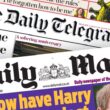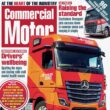London-based Immediate Media has won the lucrative contract to publish Disney children’s magazines which, it is believed, will add some £12m (5%) to its revenues in 2019. The UK contract was formerly held by the £50m-revenue UK subsidiary of the Danish-owned Egmont group which first published Disney magazines in Scandinavia all of 70 years ago.
The coup highlights the continuing growth of Immediate which is the UK’s most profitable magazine publisher and the market leader in TV listings, children & parenting, and food – and perhaps also in other sectors including crafts and cycling.
It is almost 12 months since Hubert Burda Media acquired Immediate from Exponent for £270m (5-6 x EBITDA) during a year when 50% of all UK magazine publishing has changed hands. Burda’s price for Immediate was more than double the £121m that the private equity firm had paid the BBC seven years before.
That’s not how it’s meant to be. But Immediate is the magazine publisher that grows profits, increases margins and circulations, and launches new monthlies. Three months ago, it paid an estimated £30m to acquire the £25m-revenue BBC Good Food, which has the biggest cross-media reach of any UK magazine brand, with 22m monthly uniques, 1.3m magazine readers, and 250,000 exhibition visitors. But there is something you should know. Immediate’s 95-year-old Radio Times (the world’s first broadcast listings magazine) may account for some 50% of the company’s profit and is much more resilient than you would ever guess.
For years, it accounted for almost 100% of the profits of the former BBC Magazines. Even now, when printed listings have no right to exist, Radio Times is the UK’s third most popular paid-for magazine – and the most profitable. Its average weekly sales in the first half of 2018 were 577k, a relatively modest 24% decline in the past four years. And profits have been sustained by a cover price that has increased from £1.80 to £2.80 in that time.
Even in a UK magazine market still so dependant on newsstand sales, a full 45% of the Radio Times circulation is from posted subscriptions (another pattern right across the Immediate business which has a total of 1.1m subs). But, even that is only part of the surprising story. This month’s Christmas “double” edition of the indestructible Radio Times is expected to sell almost 2m copies at the “special” price of £4.90. It’s a decades-long tradition. So, for all the growth in digital (and Radio Times is no slouch there either), one of Britain’s best-loved magazines is the ultimate cash cow that has funded Immediate’s reinvention – and produced the UK industry’s best profit margins.
The truth, of course, is that Radio Times is a high-quality magazine for an increasingly attractive older demographic and is much more than listings. That’s why it has been able to maintain a large audience and develop successful e-commerce in travel, books, gardening and financial services. The profits have funded investments including in the TV channels The Sewing Quarter and JewelleryMaker whose revenues last year increased by 28%.
For a company that continues to deliver strong year-by-year results and has just emerged from private equity ownership, Immediate has a surprisingly settled long-term focus. With eyes on the future, it has recruited senior executives from Amazon, Sainsbury and the Ideal Home TV shopping channel, after previously hiring from Tesco and eBay. In a traditional media market of endless redundancies, Immediate is a genuine growth business and a steady employer of some of the UK’s top media talent. It’s a magazine-centric company with a never-ending stream of positive news and, now, the deal which gives Immediate an unrivalled set of children’s media licenses with the BBC, LEGO and Disney.
For Burda, the acquisition of Immediate this year almost doubled its international business to some 40% of revenue and the UK is now its largest market outside Germany. In addition to Radio Times, Immediate has some 50 brands in the specialist magazines sweet spot. Its key brand include: Gardens Illustrated, Cycling Plus, MountainBike UK, Triathlon, Cross Stitcher Gold, Olive, Lonely Planet Traveller, and BBC titles Top Gear, Gardeners’ World, History, Good Food, and CBeebies.
CEO Tom Bureau (as much tech as traditional media) is an under-stated but unmistakeable media industry star. But lesser rivals can be heard to snipe at the way Radio Times has bankrolled his company. They are missing the point. Immediate has a robust strategy for its “high-value special interest markets”. Its motivated team is bubbling with ideas, the company is spending £4m a year on R&D, and still manages to be more profitable than its larger peers.
Immediate is almost as good with data as print, and has cracked the major challenge for so many traditional groups: how to create ‘new’ media in existing markets without subordinating it to long-established print brands. While Radio Times (and other print magazines) still dominate the financials, hundreds of Immediate people are focused solely on digital media, e-commerce and events, and the success of digital projects like the wedding app Hitched and MadeForMums shows the strategy is working.
Although it is very much a work in progress (and we might expect some bigger acquisitions to accelerate the growth in retailing and events), this is not the beleagured magazine market. Nor is Immediate’s parent company. In 110 years, the privately-owned Burda has grown into one of Europe’s largest and steadiest lifestyle media groups. Its real rise to prominence began in 1949 with the launch of Burda Moden, now called Burda Style, a sewing pattern magazine published in 15 languages. The Munich-based Burda now has one of the world’s largest databases of digital sewing patterns.
The company is increasingly international. Across 20 countries, the €2.7bn-revenue Burda publishes more than 300 magazines, including the newsweekly Focus, celebrity magazine Bunte, and local editions of Elle, InStyle and Playboy. For the past 20 years, Burda has been funding digital startups and investments include: Etsy, Baublebar, Vinted, M.Gemi, Nebenan.de, NotOnTheHighstreet and Zilingo.
Owner Hubert Burda multiplied his inheritance during 25 years running the company. In 2010, he handed over day-to-day control to its first non-family CEO, former McKinsey consultant Paul-Bernhard Kallen who has presided over undisrupted growth. London insiders contrast his trusting, hands-off Burda management style with the micro-focus of Hamburg-based Bauer (which itself had once tried to buy the former BBC Magazines).
The numbers tell the story of Burda, as a company which doesn’t meddle in the management of subsidiaries: it has almost 12,000 employers in 20 countries but a headquarters team of only 30. It’s working.



